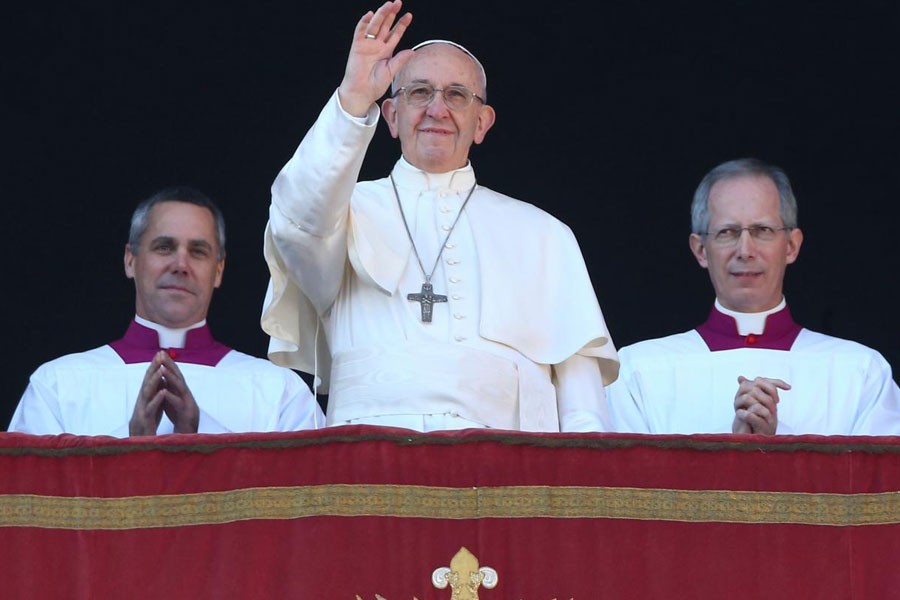Pope Francis has used his Christmas message to call for a negotiated two-state solution to end the Israeli-Palestinian conflict, after US President Donald Trump stoked regional tensions with his recognition of Jerusalem as Israel’s capital.
Francis spoke of the Middle East conflict and other world flashpoints in his “Urbi et Orbi” (to the city and the world) address, four days after more than 120 countries backed a UN resolution urging the United States to reverse its decision on Jerusalem.
“Let us pray that the will to resume dialogue may prevail between the parties and that a negotiated solution can finally be reached, one that would allow the peaceful coexistence of two states within mutually agreed and internationally recognized borders,” he said in his address on Monday, delivered from the balcony of St Peter’s Basilica to tens of thousands of people.
It was the second time that the pope has spoken out publicly about Jerusalem since Trump’s decision on Dec 6.
On that day, Francis called for the city’s “status quo” to be respected, lest new tensions in the Middle East further inflame world conflicts, says a Reuters report.
The leader of the world’s 1.2 billion Roman Catholics, Francis urged people to see the defenseless baby Jesus in the children who suffer the most from war, migration and natural calamities caused by man today.
OPEN HEARTS FOR REFUGEES
Francis, celebrating the fifth Christmas of his pontificate, said he had seen Jesus in the children he met during his recent trip to Myanmar and Bangladesh, and he called for adequate protection of the dignity of minority groups in that region.
More than 600,000 Muslim Rohingya people have fled mainly Buddhist Myanmar to Bangladesh in recent months.
The pope had to tread a delicate diplomatic line during his visit, avoiding the word “Rohingya” while in Myanmar, which does not recognize them as a minority group, though he used the term when in Bangladesh.
He also urged the world to see Jesus in the innocent children suffering from wars in Syria and Iraq and also in Yemen, complaining that its people had been “largely forgotten, with serious humanitarian implications for its people, who suffer from hunger and the spread of diseases”.


